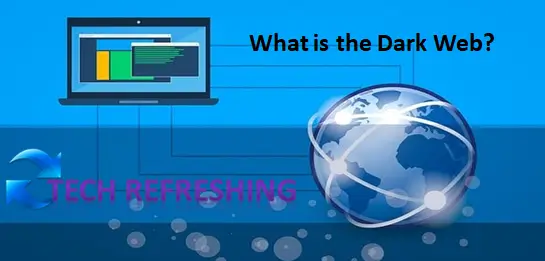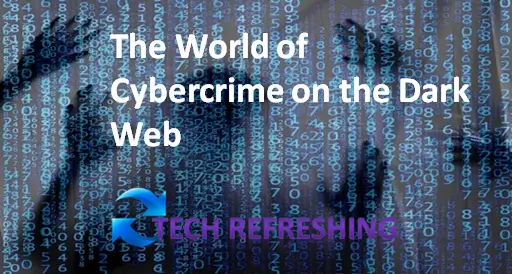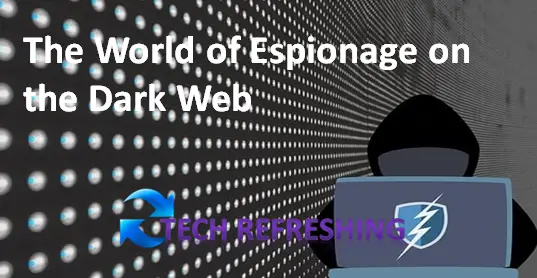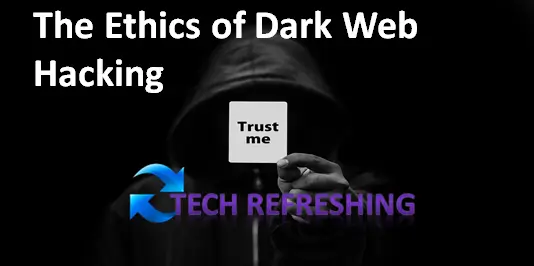Dark Web Hacking: An Inside Look at the World of Cybercrime and Espionage
The Dark Web constitutes a segment of the internet that isn’t readily available to the broader public. It encompasses a range of websites and online content that are concealed from search engines and necessitate specialized software and settings to gain entry. This characteristic makes it a favored venue for illicit activities, such as cybercrime and espionage.
In recent years, there has been an exponential surge in cybercrime and espionage on the Dark Web. Malicious actors such as cybercriminals and spies exploit the anonymity and security of the Dark Web to perpetrate their unlawful undertakings. From hacking and identity theft to political espionage, the Dark Web has evolved into a central nexus for criminal pursuits that can pose significant consequences for individuals, businesses and even governments.
Understanding the Dark Web and its effects on security is crucial. It is crucial to keep educated about the threats the Dark Web represents because it seriously jeopardises national security and cybersecurity. Cybercrime and espionage on the Dark Web are becoming more dangerous as the world grows more linked. For people and companies to keep safe online, it is crucial to understand the Dark Web and its role in crimes and espionage.
What is the Dark Web?

Definition and Explanation of the Dark Web
The Dark Web is a segment of the internet that eludes search engine indexing and can only be accessed through specific software and settings. It comprises a network of exclusive servers that are concealed from the public eye, making it challenging to trace online actions. The Dark Web serves multiple purposes, including the trade of illicit drugs, weapons, and other prohibited goods and services that are unavailable on the surface web. Moreover, it also operates as a conduit for criminal pursuits such as cybercrime and espionage.
How it is Accessed and How it Differs from the Regular Internet
Access to the Dark Web is possible through a Tor browser, which enables users to connect with the network of exclusive servers and access hidden websites. The Tor browser deploys a sequence of relays and encryption techniques to obscure the user’s location and identity, rendering it arduous to track their online actions.
A Tor browser is required to access the Dark Web, enabling users to link up with the network of private servers and browse the concealed websites. The Tor browser utilizes a sequence of relays and encryption to conceal the user’s location and identity, rendering it arduous to track their online endeavors.
Its Role in Facilitating Cybercrime and Espionage
The Dark Web has emerged as a nucleus for cybercrime and espionage, given its capability to provide anonymity and security to malefactors and spies. Cybercriminals leverage the Dark Web to vend stolen data, comprising of credit card details and personal identification papers. Furthermore, they exploit the Dark Web to peddle hacking tools and services, such as DDoS attacks and phishing campaigns.
Espionage is also a significant threat on the Dark Web. Nation-states and corporations use the Dark Web to steal intellectual property, gain access to confidential information, and carry out political espionage. The anonymity and security of the Dark Web make it an ideal platform for espionage activities that can have serious implications for national security and global politics.
Overall, the Dark Web is quite helpful in assisting espionage and crimes. Its uncontrolled nature makes it difficult to stop these operations, and its anonymity and security make it an appealing platform for thieves and spies. It’s essential for individuals and companies to comprehend the Dark Web and its ramifications in order to be secure online.
The World of Cybercrime on the Dark Web

Different Types of Cybercrime on the Dark Web
The Dark Web is a breeding ground for cybercrime, and there are many types of illegal activities that take place on the network. Some of the most common types of cybercrime on the Dark Web include:
- Hacking: To steal data, interfere with services, or harm systems, one must acquire unauthorised access to computer networks and systems. On the Dark Web, cybercriminals sell hacking tools and services, making it simpler for people with little to no technical knowledge to launch cyberattacks.
- Phishing: Phishing is the practise of pretending to be a reliable website or service in order to fool users into disclosing sensitive information, such as login passwords. Phishing kits, which include everything required to conduct a phishing campaign, including false login pages and email templates, are sold by cybercriminals on the Dark Web.
- Identity theft: Identity theft is the act of taking a person’s personal data, including social security numbers and bank account information, in order to engage in fraudulent activity. Cybercriminals selling stolen identities on the Dark Web make it simpler for others to commit crimes under someone else’s identity.
How Cybercriminals Operate on the Dark Web
Cybercriminals on the Dark Web use a variety of tactics to carry out their illegal activities. They use anonymous messaging services, such as encrypted chat rooms and forums, to communicate with each other and coordinate attacks. They also use cryptocurrency, such as Bitcoin, to conduct transactions and avoid detection.
On the Dark Web, cybercriminals deploy an assortment of hacking tools and services to conduct cyberattacks. DDoS attacks are utilized to incapacitate websites, ransomware is utilized to encrypt files and coerce payment for their release, while malware is deployed to filch data and spy on computer systems.
The Economics of Cybercrime on the Dark Web
Cybercrime is a lucrative business, and the Dark Web provides a platform for criminals to sell their goods and services. Cybercriminals on the Dark Web charge a premium price for stolen data including credit card numbers and personal identification documents. They also charge for hacking services and tools including DDoS attacks and phishing operations.
Cybercrime on the Dark Web has complicated economics. Cybercriminals must weigh the chance of getting detected against the gain from engaging in unlawful activity. To offer their goods and services, they must also compete with other cybercriminals, which may result in lower prices and lower earnings.
It’s essential for individuals and organizations to protect themselves online by understanding the extensive and intricate realm of cybercrime on the Dark Web. This includes comprehending the different categories of cybercrime that take place on the network, the modus operandi employed by cybercriminals, and the economics of cybercrime.
The World of Espionage on the Dark Web

Different Types of Espionage on the Dark Web
Besides being a center for cybercrime, the Dark Web also serves as a venue for espionage operations, which utilize various techniques to gather information not easily accessible to the general public. Among the typical types of espionage activities that occur on the Dark Web are:
- Nation-state hacking: A sort of espionage used by governments to get private data from other countries is known as nation-state hacking. The Dark Web gives governments a platform to conduct such operations in the privacy they desire.
- Corporate espionage: Business espionage is the stealing of trade secrets or other sensitive information from companies. Corporate spies have a platform to sell such information to the highest bidder on the Dark Web.
- Political espionage: Using intelligence-gathering methods to sway political judgements is considered political espionage. Political operatives can conduct such actions on the Dark Web in an anonymous manner.
How Spies Operate on the Dark Web
The Dark Web is a platform where spies operate using a number of methods. For communication and attack planning, they make use of anonymous messaging platforms like forums and chat rooms that are encrypted. In addition, they carry out transactions anonymously by using cryptocurrencies like Bitcoin.
Spies on the Dark Web can obtain confidential data by using a range of hacking tools and services. They deploy malware to steal data and snoop on computer systems, DDoS attacks to shut down websites, and ransomware to encrypt files and demand money for their decryption.
The Implications of Espionage on the Dark Web for National Security and Global Politics
The Dark Web’s espionage efforts have a tremendous impact on international politics and national security. Nation-state hacking poses a risk to national security by compromising private information held by the government. The theft of trade secrets as a result of corporate espionage can hurt the economy and businesses’ ability to compete.
Political espionage can affect political judgements and result in the tampering of democratic procedures. Espionage actions can have serious repercussions because it is difficult to identify and stop them because of the anonymity that the Dark Web offers.
Global politics and national security are both seriously endangered by the espionage industry on the Dark Web. For people, companies, and governments to stay safe and secure in the digital age, it is essential to understand the different sorts of espionage operations that occur on the network, how spies function and the ramifications of espionage.
The Ethics of Dark Web Hacking

The Ethical Considerations of Hacking
Accessing a computer system without authorization is known as hacking. There are many moral questions surrounding this contentious subject. Hacking, according to some, infringes both intellectual property rights and privacy. Some contend that in order to find and address computer system vulnerabilities, hacking is a crucial tool.
Arguments for and Against Hacking
Arguments for hacking include the following:
- Hacking can help uncover security vulnerabilities: Hacking can help identify security weaknesses in computer systems that may not have been detected otherwise. This can help businesses and individuals take steps to improve their security and protect themselves from cyber threats.
- Hacking can promote transparency: Hackers can use their skills to uncover information that organizations may not have made public. This can promote transparency and hold organizations accountable for their actions.
Arguments against hacking include the following:
- Hacking violates privacy and intellectual property rights: Hacking can involve accessing private data and stealing intellectual property, which is illegal and unethical.
- Hacking can cause harm: Hacking can cause significant harm to individuals and organizations, including financial loss, reputational damage, and even physical harm in some cases.
The Role of Hacking in Cybersecurity
Cybersecurity is significantly impacted by hacking. White hat hackers, also referred to as ethical hackers, use their knowledge to find security holes in computer systems and assist businesses in strengthening their defences. They do this with the owners of the system’s consent with the intention of enhancing security.
Black hat hackers, on the other hand, employ their abilities for evil intentions, such as stealing confidential information or upsetting systems. These hackers are committing cybercrimes and acting unethically.
In conclusion, there are many different perspectives on the complicated topic of hacking ethics. While some contend that hacking is a vital tool for spotting security flaws, others think it is an unethical practise that infringes on people’s privacy and intellectual property rights. Regardless of personal preferences, it’s critical to understand the function of hacking in cybersecurity as well as the distinction between ethical and unethical hacking.
Conclusion
The Importance of Understanding the Dark Web and its Implications
An area of the internet called the Dark Web has emerged as a centre for espionage and crimes. Understanding its role in enabling these operations and the effects it has on cybersecurity and national security is crucial. Neglecting the Dark Web and its activities can have detrimental effects on one’s finances, reputation and even physical health.
With the escalating menace of cybercrime and espionage on the Dark Web, the demand for superior cybersecurity measures has become more pressing. Individuals and organizations need to take precautions to guard themselves against cyber threats. This encompasses keeping software updated, using robust passwords, and implementing multi-factor authentication.
Governments and law enforcement agencies must take action to counteract cybercrime and espionage. This comprises elevating financial support for cybersecurity measures, fostering international cooperation and pioneering new technologies to combat cyber threats.
Final Thoughts and Recommendations for Individuals and Organizations
To sum up, the Dark Web is an intricate and hazardous realm that carries significant consequences for people, institutions and national security. It is crucial to comprehend the Dark Web’s part in promoting cybercrime and espionage and necessary measures should be taken to shield ourselves and our organizations.
Individuals and organizations should implement strong cybersecurity measures, including using strong passwords and multi-factor authentication, keeping software up to date and being cautious when sharing sensitive information online.
It is imperative for governments and law enforcement agencies to join forces in the fight against cybercrime and espionage on the Dark Web. This entails augmenting the financial resources allocated towards cybersecurity measures, enhancing international cooperation and pioneering new technologies to counteract cyber threats.
By implementing precautionary measures to safeguard ourselves and our organizations, we can assist in curbing cybercrime and espionage on the Dark Web and ensure a more secure and safer online environment for all.


